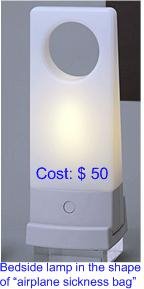When Japan’s Ryohin Keikaku Co. opens a 5,000-sq.-ft. store for its Mujirushi Ryohin – or Muji – brand inside the New York Times Tower sometime later this year, it will raise an intriguing question. Can a “no-logo” brand win mass-market appeal in the rough and tumble U.S. retailing sector? Muji’s success in Japan and Europe suggests it might play well in the U.S.
Since 2002, the brand, which translates from Japanese as “No Brand, Quality Products,” has tested the U.S. market with a limited selection of its 7,000 products at stores run by the Museum of Modern Art in New York. Among Muji’s biggest boosters are consumers who are tired of in-your-face logos and over-the-top designs.
 And yet, Muji isn’t just another generic brand. The company taps notable designers such as Sam Hecht, Jasper Morrison, and Naoto Fukasawa to create products, which gives it street cred with the “designerati.” Its policy of using recyclable materials appeals to eco-friendly types. Plus, the company also has cultivated a consumer-friendly image by tapping into an online community of diehard fans who vote on new product designs, offer feedback for design modifications, or protest when the company discontinues a product they can’t get elsewhere. Here’s a look at a few of Muji’s products. Some may be headed stateside soon.
And yet, Muji isn’t just another generic brand. The company taps notable designers such as Sam Hecht, Jasper Morrison, and Naoto Fukasawa to create products, which gives it street cred with the “designerati.” Its policy of using recyclable materials appeals to eco-friendly types. Plus, the company also has cultivated a consumer-friendly image by tapping into an online community of diehard fans who vote on new product designs, offer feedback for design modifications, or protest when the company discontinues a product they can’t get elsewhere. Here’s a look at a few of Muji’s products. Some may be headed stateside soon.
Product developers at Ryohin Keikaku actually asked for ideas from consumers with the prototype so that it can modify it further to suit the majority consumers. Take an example of bedside lamp; it resembles an airplane sickness bag and has hole at the top so it can be carried by hand or hung on a doorknob. Inside is a warm-colored fluorescent light powered by rechargeable nickel-cadmium batteries. Once removed from its recharging stand, the lamp will stay lit for an hour.
Another great design is the lightweight and collapsible speakers which have a shell that’s made of cardboard. They can be easily disassembled, and the plastic envelope they’re sold can be reused as a pouch to tote the speakers around.
 Such are the great designs and innovations from a nation which managed to lock-in the best-brain to bring a country to a greater height. It’s the strangest thing ever happen to country such as Malaysia which has abundance of great brains but chose to kick them away to the welcome arm of other countries; simply because they are not the Malay-ethnic or Bumiputra. Will the government ever understand that in order to stand tall and sit on equal height with developed countries such as U.S. and Japan, human capital is the most important ingredient?
Such are the great designs and innovations from a nation which managed to lock-in the best-brain to bring a country to a greater height. It’s the strangest thing ever happen to country such as Malaysia which has abundance of great brains but chose to kick them away to the welcome arm of other countries; simply because they are not the Malay-ethnic or Bumiputra. Will the government ever understand that in order to stand tall and sit on equal height with developed countries such as U.S. and Japan, human capital is the most important ingredient?
When you depend heavily on commodity export for the last 50-years since independence without sign of seeing the light of becoming a technology and innovative country which has the ability to develops your own IP (Intellectual Property), you’re good till commodities lasts. You’re as vulnerable as a beggar who relies on people’s kindness to give him/her the two meals per-day once you’re out of things to sell. When that day comes, the whole economy might collapse leaving the unwanted population crying endlessly. Why do you think Dubai was built (and still is building) with such a ferocious speed and the market liberalized beyond everyone’s imagination?

|
|
March 31st, 2007 by financetwitter
|


|

|

|

|

|

|




























read your article … and i heard that muji is coming in to malaysia …. in August 2012.